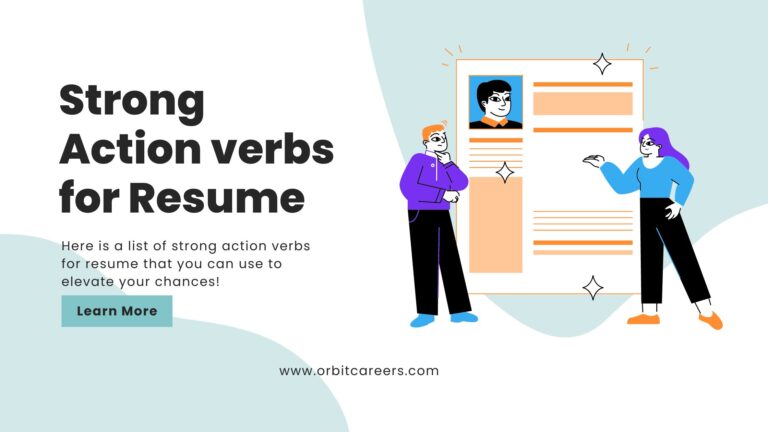Your resume is your first impression on potential employers. It’s crucial to present yourself in the best light possible and avoid common resume mistakes that can hinder your chances of landing a job interview. In this blog post, we will explore some common pitfalls in resume writing and provide practical solutions to fix them. By avoiding these mistakes and implementing the suggested remedies, you can create a standout resume that captivates employers and maximizes your job search success.
- Poor Formatting and Structure: One of the most common resume mistakes is poor formatting and structure. A cluttered and unorganized resume can be off-putting to employers. To fix this, use clear headings and subheadings, bullet points for concise information, and consistent formatting throughout the document. Ensure that your resume is visually appealing, easy to navigate, and presents information in a logical order.
- Lack of Focus and Relevance: Another mistake is having a generic resume that lacks focus and relevance to the job you’re applying for. Avoid sending the same resume for different positions. Tailor your resume to each job by highlighting relevant skills, experiences, and achievements. Research the job description and company to understand their needs and incorporate keywords and specific qualifications that align with the role.
- Lengthy and Unfocused Summary/Objective: A lengthy and unfocused summary or objective statement can bore employers and dilute the impact of your resume. Keep your summary or objective concise and compelling, highlighting your key qualifications and what you bring to the table. Focus on the value you can provide to the employer and avoid generic statements. Keep it to a few sentences that capture their attention and generate interest in your candidacy.
- Lack of Quantifiable Achievements: Many resumes fail to showcase quantifiable achievements, instead listing only job responsibilities. To stand out, include specific accomplishments and results you’ve achieved in previous roles. Use numbers, percentages, and metrics to quantify your achievements, such as increasing sales by a certain percentage, exceeding targets, or leading successful projects. This demonstrates your ability to deliver tangible results.
- Grammatical and Spelling Errors: Grammatical and spelling errors are resume killers. They give the impression of carelessness and lack of attention to detail. Proofread your resume thoroughly, use spell-check tools, and seek feedback from others to catch any errors. Take the time to review and edit your resume multiple times to ensure its accuracy and professionalism.
- Including Irrelevant Information: Including irrelevant information in your resume can clutter the document and distract employers from your key qualifications. Keep your resume focused on what’s most relevant to the job and industry. Omit irrelevant experiences, hobbies, or personal details unless they directly relate to the position or demonstrate transferable skills.
- Lack of Action Verbs and Impactful Language: Using weak or passive language in your resume can diminish the impact of your accomplishments. Replace generic phrases with action verbs to describe your responsibilities and achievements. Choose powerful verbs like “managed,” “led,” “initiated,” or “achieved” to convey a sense of action and accomplishment. Focus on the outcomes and impact of your actions to demonstrate your value to potential employers.
- Failure to Customize for ATS: Applicant Tracking Systems (ATS) are commonly used to screen resumes, so it’s crucial to optimize your resume for ATS compatibility. Tailor your resume by incorporating keywords from the job description. Use a mix of industry-specific terms and general keywords to increase the chances of passing the initial ATS screening. However, avoid keyword stuffing and maintain the natural flow of your resume.
Conclusion:
By avoiding these common resume mistakes and implementing the suggested fixes, you can create a compelling and error-free resume that stands out to employers. Remember to focus on relevant information, optimize formatting and structure, showcase quantifiable achievements, proofread diligently, and customize your resume for each application. A well-crafted resume demonstrates your professionalism, attention to detail, and suitability for the role. Invest the time and effort to perfect your resume, and open doors to exciting career opportunities.
FAQ
It’s essential to include relevant work experiences on your resume, but you don’t need to list every job you’ve ever had. Focus on experiences that demonstrate your skills and achievements, particularly those that align with the job requirements.
References are typically not included on a resume unless specifically requested by the employer. You can provide a separate reference list when it is explicitly asked for during the application process.
Using a resume template can be a helpful starting point, but make sure to customize it to reflect your unique qualifications. Avoid using generic templates that make your resume look like countless other applicants. Personalize the template to showcase your skills, experiences, and achievements effectively.
Generally, it’s recommended to include work experiences from the past 10-15 years. However, if you have earlier experiences that are highly relevant or impressive, you can include them as well. The key is to prioritize recent and relevant experiences while ensuring your resume doesn’t become overly lengthy.
In most cases, it’s best to avoid including a photo on your resume, unless specifically requested by the employer. Focus on presenting your qualifications, skills, and experiences through well-written content rather than your physical appearance.
While it may seem convenient to use a single resume for multiple job applications, it’s crucial to tailor your resume to each specific job you apply for. Customize your resume by highlighting the skills, experiences, and keywords that align with the requirements of each position. This targeted approach increases your chances of getting noticed by employers.





